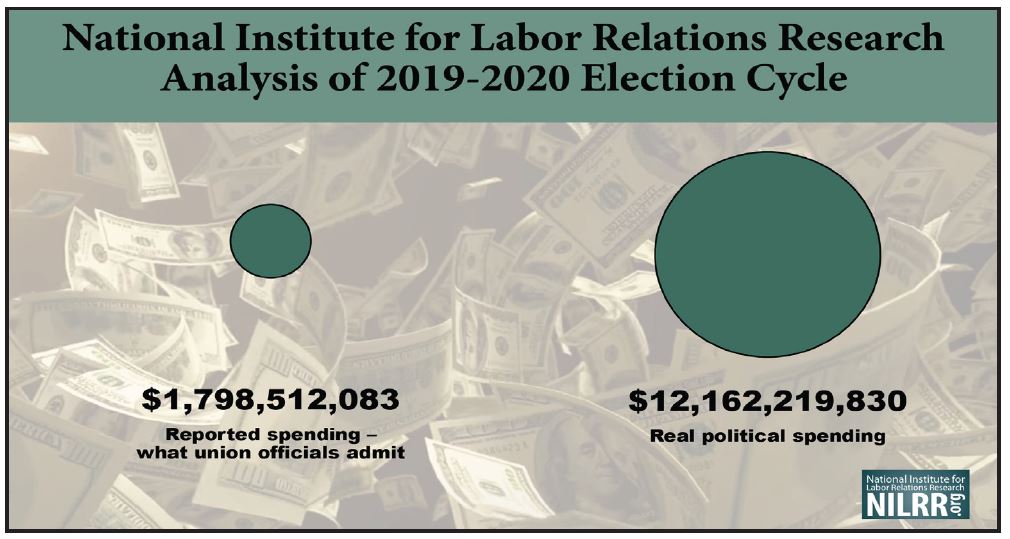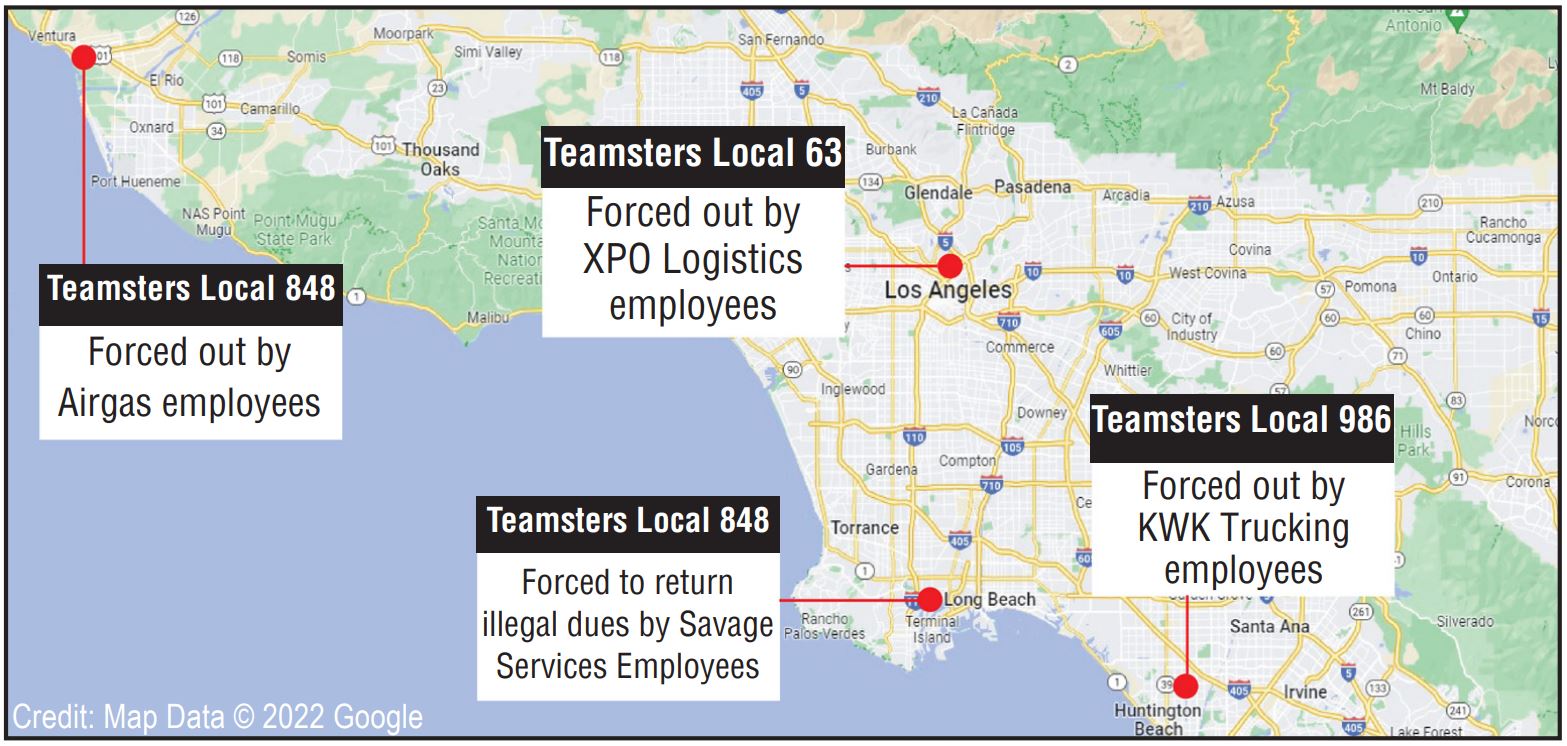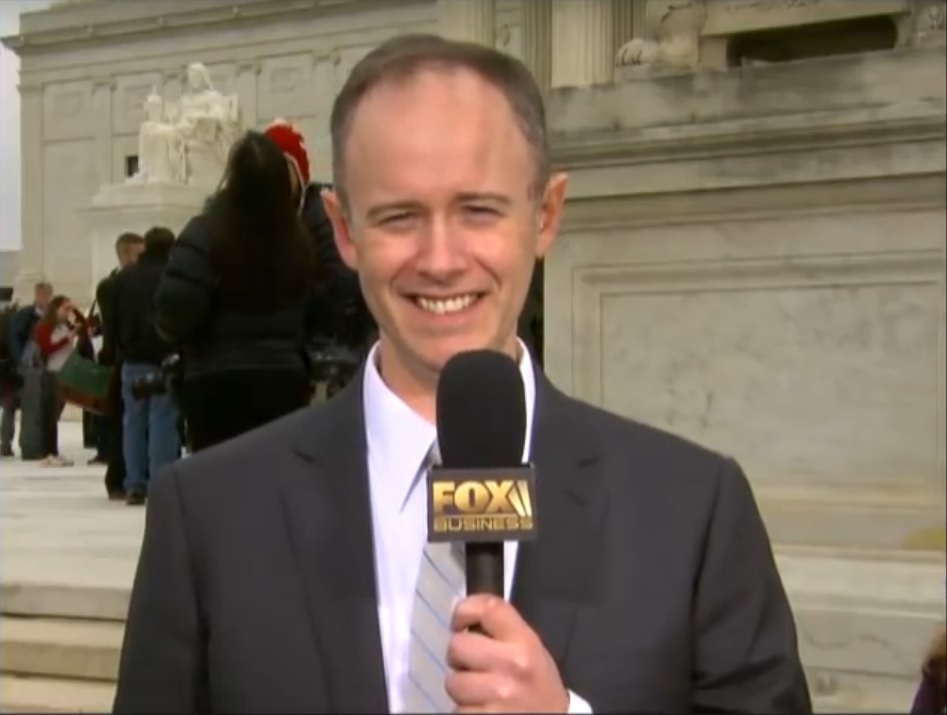Boeing Technician Files Federal Lawsuit Against Machinists Union Over Illegal Forced Dues Demands
Instead of reducing nonmember worker’s payments in accordance with Supreme Court precedent, union bosses charged him arbitrary higher amount
Seattle, WA (May 24, 2022) – With free legal aid from the National Right to Work Legal Defense Foundation, Seattle Boeing technician Don Zueger is suing International Association of Machinists (IAM) union officials in federal court for violating his right to refrain from paying for unwanted union activities.
Zueger, who is not a member of the IAM union, is defending his right under the Foundation-won 1988 CWA v. Beck U.S. Supreme Court decision, in which the Court ruled that union officials cannot charge full union dues to objecting private sector workers who have abstained from formal union membership. Under Beck, union officials can only charge union nonmembers “fees” which exclude expenses for things like union political activities.
Because Washington State lacks Right to Work protections for its private sector workers, nonmembers like Zueger can be forced to pay the reduced amount under Beck as a condition of keeping their jobs. In Right to Work states, in contrast, union membership and all union financial support are strictly voluntary.
IAM Officials Continue to Overcharge Worker in Violation of His Rights
According to Zueger’s lawsuit, filed in the U.S. District Court for the Western District of Washington, he submitted a request to IAM union officials in February resigning his union membership and asking for his dues payments to be reduced under Beck.
Zueger’s lawsuit reports that IAM officials’ response to his Beck request claimed that, under IAM’s nationwide policy, the portion of union dues he is required to pay is based on averages of selected audits that in each case include nine other local and district IAM affiliates. This means the forced union fee amount is not calculated using the actual amounts determined in the audits of the local and district IAM affiliates that Zueger is required to fund as a condition of employment. Unsurprisingly, this resulted in Zueger’s dues reduction being significantly less than it would have been had union officials only used the audits for the district and local affiliates Zueger is forced to fund.
According to his lawsuit, union officials are still demanding from Zueger dues in excess of the amount Beck permits. The lawsuit seeks to force IAM union bosses to return all money demanded in violation of Beck and to properly reduce his future union payments in accordance with Beck.
Workers Should Be Wary of Illegal Union Dues Schemes as Union Political Activity Increases
Zueger’s lawsuit comes after union bosses spent near-record sums on politics during the 2020 election cycle. A report by the National Institute for Labor Relations Research (NILRR) released in 2021 revealed that union officials’ own Department of Labor filings show about $2 billion in political spending during the 2020 cycle, primarily from dues-stocked union general treasuries. Moreover, other estimates strongly suggest that actual union spending on political and lobbying activities actually topped $12 billion in 2019-2020.
“It doesn’t take a rocket scientist to figure out when union officials are trying to strong-arm employees into subsidizing union activities, including politics, against their will. IAM officials’ nonmember dues scheme doesn’t pass the smell test,” commented National Right to Work Foundation President Mark Mix. “While we’re proud to help Mr. Zueger defend his Beck rights, ultimately no American worker should be forced to pay fees determined by the whims of union officials simply in order to keep their jobs.”
“This case shows why Right to Work laws are needed nationwide to ensure that the decision to join or financially support a union is strictly a matter of each individual worker’s own conscience. Workers should be especially aware of attempts by union officials to force them to fund union activities as union political activity heats up in advance of this year’s elections,” Mix added.
Orange County Lifeguards Push for Rehearing of First Amendment Challenge to Union Scheme Trapping Them in Union Membership
Restrictions will trap lifeguards in union membership and full dues payments for almost four years after they opted out of union
Orange County, CA (May 16, 2022) – California lifeguard Jonathan Savas and 22 colleagues are pressing for a rehearing of their federal civil rights lawsuit before an en banc panel of judges of the U.S. Ninth Circuit Court of Appeals. Savas and the others are suing the State of California and the California Statewide Law Enforcement Association (CSLEA) union for violating their and their coworkers’ First Amendment right to abstain from forced union membership and compelled financial support.
Savas and his colleagues are asserting their rights under the National Right to Work Foundation-won 2018 Janus v. AFSCME U.S. Supreme Court decision, in which the Court declared that no public sector worker can be forced to bankroll a union without voluntarily waiving their First Amendment right to abstain from union payments.
A so-called “maintenance of membership” requirement enforced by CSLEA union bosses and the State of California is forcing the lifeguards to both remain union members and supply full dues payments to the CSLEA union against their will. Savas and the other plaintiffs sent messages resigning their union memberships and ending dues authorizations on or around September 2019, but union officials denied their requests, alleging they have to remain full members until 2023. Despite Janus, a three-judge panel of the Ninth Circuit ruled that this requirement does not violate the First Amendment.
Lifeguards’ Attorneys: ‘Maintenance of Membership’ Requirements Have Been Unconstitutional for Decades
Savas’ attorneys criticize the Ninth Circuit panel’s giving a pass to “maintenance of membership” requirements as contradicting Janus, and note that forcing dissenting employees to pay full union dues was unconstitutional even under Abood, the 1977 Supreme Court decision which Janus overruled. The lifeguards are receiving free legal representation from staff attorneys with the National Right to Work Legal Defense Foundation and the Freedom Foundation, along with Mariah Gondeiro of Tyler Bursh, LLP.
“The Supreme Court recognized decades prior to Janus, in Abood, that it violates the First Amendment for government employers and unions to require dissenting employees pay full union dues…If maintenance of membership requirements could not survive constitutional scrutiny under Abood,” Savas’ attorneys argue, the requirements are definitely foreclosed by the higher level of First Amendment protection applied in Janus.
Savas’ en banc request also refutes the Ninth Circuit panel’s claim that the lifeguards somehow “contractually consented to the maintenance of membership requirement.” Savas’ attorneys point out that the dues deduction authorization form that the lifeguards signed only vaguely alluded to the presence of the “maintenance of membership” requirement in the union contract with their state employer, and never explicitly informed the lifeguards what that requirement was.
On that same point, Savas’ attorneys point out that “the panel’s contract-law analysis is wrongheaded because Janus requires a constitutional-waiver analysis.” Janus requires that employees voluntarily waive their First Amendment right not to make dues payments before such payments are extracted. Savas’ attorneys state “[t]here is no evidence the Lifeguards knew of their First Amendment rights under Janus or intelligently chose to waive those rights.” Indeed, many of the lifeguards could not have known about those rights because they signed the dues deduction authorization forms before the Supreme Court decided Janus.
“Even if such evidence existed, any purported waiver would be unenforceable…because a four-year prohibition on employees’ exercising their First Amendment rights under Janus is unconscionable,” Savas’ attorneys continue.
Ninth Circuit Panel Ruling Completely Inconsistent with Janus, Rehearing Required
“So-called ‘maintenance of membership’ requirements have been unconstitutional for decades, and it’s outrageous that courts have looked the other way and allowed CSLEA union bosses to infringe Savas’ and his fellow lifeguards’ First Amendment rights under the guise of such restrictions for so long,” commented National Right to Work Foundation President Mark Mix. “A rehearing of Savas’ case is necessary so the plain meaning of Janus can be applied. Otherwise the Ninth Circuit will not only have ignored Janus, but turned back the clock over half a century on workers’ right to refrain from union membership.”
National Right to Work Foundation in the Detroit News: Big Labor’s Latest Attack on Michigan Right to Work
A recent op-ed from National Right to Work Foundation President Mark Mix in the Detroit News discusses union bosses never-ending attempts to overturn or undermine Michigan’s Right To Work protections for workers.
The article explains how union officials wield their monopoly power against workers in the union-controlled “grievance process” and why the Foundation recently filed an amicus brief in a case currently at the Michigan Supreme Court in which union officials are attempting to circumvent Right to Work:
Courts have long recognized that, in unionized workplaces, union kingpins effectively own the process through which workplace grievances regarding alleged misapplications or misinterpretations of company policies are handled.
Five-and-a-half decades ago, U.S. Supreme Court Justice William Brennan’s majority opinion in NLRB v. Allis Chalmers bluntly acknowledged that America’s national labor policy “extinguishes the individual employee’s power to order his own relations with his employer,” while “clothing” union bosses with monopoly-bargaining power.
And Justice Thurgood Marshall’s 1975 Emporium Capwell opinion resoundingly affirmed that a union controls all grievances under “exclusive” union bargaining, notwithstanding any employee attempts to redress grievances independently.
Their ironclad control over employee grievances is undoubtedly a boon for union bosses. Two current federal lawsuits filed by Michigan workers against United Auto Workers union bosses and Fiat Chrysler executives vividly illustrate why.
In one of these cases, 42 current and former employees of FCA (now known as Stellantis) charge that they were cheated out of wages and benefits they were promised by UAW bosses when their pay was cut from $28 an hour to $16 an hour after they switched from part-time to full-time jobs.
When the workers complained about the pay cut, local UAW bosses allegedly promised to file grievances on their behalf — but never did.
In the other case, 47 current and former engineers allege that FCA violated the union contract when it transferred them from a facility in Auburn Hills to another one in Trenton. Grievances they filed regarding the matter were mishandled or withdrawn without explanation by the UAW brass.
As outrageous as UAW bosses’ failure to follow up adequately on workers’ grievances in these two cases may seem to ordinary citizens, the fact is that federal law permits union bosses with monopoly-bargaining power to refuse to advance workers’ legitimate grievances simply because they don’t think it’s in the interest of the union to do so.
[…]
But even this extraordinarily privileged status isn’t enough to satisfy government union officials in Michigan. In Technical, Professional, and Officeworkers Association of MI v. Daniel Renner, a case now pending before the Michigan Supreme Court, they are brazenly contending they may vindictively refuse to process the grievances of union nonmembers to punish them for not joining and bankrolling the union, even when the union contract prohibits the individual employee from filing grievances on his or her own behalf.
Though union lawyers’ outrageous claims in Renner’s case have already been rejected at the Michigan Employment Relations Commission and at the State of Michigan Court of Appeals, there is no guarantee they will be dismissed by the Michigan Supreme Court.
That’s why the National Right to Work Legal Defense Foundation filed a brief Friday in the case defending Daniel Renner’s rights under Michigan’s right-to-work law.
The Michigan Supreme Court must reject this cynical attack on Wolverine State workers’ legal protections against being forced to fund a union they disapprove of.
Read the entire article on the Detroit News website.
More details on the case and the Foundation’s brief can be found here. Read the brief here (PDF).











